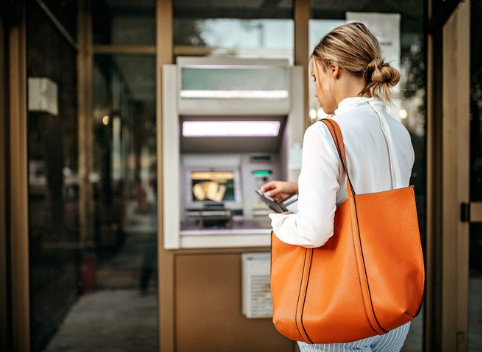Four Ways to Protect Yourself Against Identity Theft

Did you know that Identity (ID) Theft is on the rise? Since 2020, the Federal Trade Commission received about 1.4 million reports of identity theft, double the number from 2019. Given those statistics, it’s important to keep your personal information protected.
1. Secure Your Belongings
We know — it sounds obvious right? Are you really going to leave your purse in a shopping cart while you grab something on a nearby shelf? Or your laptop unattended while you leap towards the counter at Starbucks as soon as the barista calls your name? Probably not but — here’s a plot twist — how often do you consider the security of your belongings in your own home?
We typically think of home security systems as alarm codes, security cameras, smart doorbells, and countless other sophisticated technologies, but there are some surprisingly simple solutions to protecting your personal information. They’re inexpensive too!
- Get a safe and store all important documents inside – never carry your social security card around with you!
- Use a password manager for all internet accounts.
- Leave unnecessary cards & items out of your wallet. Use a phone wallet and carry only the necessities such as debit card and driver’s license.
- Request a vacation hold whenever you’ll be out of town for more than a day or two to ensure thieves can’t steal your mail.
- Invest in a paper shredder — thieves can learn way too much about you from that seemingly-innocent junk mail or old bill you just threw in the trash!
2. Know Your FACTS
Did you know that you’re entitled to a free credit report every year? The Fair and Accurate Credit Transactions Act (FACT Act) – an expansion to the original Fair Credit Reporting Act – allows American consumers to receive one copy of their credit report every 12 months. This federal law also allows for additional reports to be obtained at no cost if your accounts are suspected of ID theft or fraud, among other benefits. The best part is that all three credit reporting agencies – Equifax, TransUnion, and Experian—have one central website, telephone number, and mailing address designated specifically for this service.
3. Monitor Your Accounts
Most financial and credit institutions offer fraud and suspicious activity alerts which can be crucial in catching a compromised account early. You can also use services such as Mint, NerdWallet, and CreditKarma to monitor your credit for free, without affecting your credit score.
While these alerts can be helpful, it’s still important to check your accounts regularly — especially if you use tools like autopay for set-it-and-forget-it billing. If you have children, don’t forget to keep an eye on them too. More than 1.25 million children were victims of identity theft in 2021 and will cost the affected family an average of $1,100 per incident.
4. Beware of Stranger Danger
Yes, the famous public awareness campaign from the 1980s is just as relevant to our digital world today. Never open emails from addresses you don’t recognize, click on links that seem suspicious, or accept friend requests from people you don’t know. Criminals use a technique called social engineering that’s all about the psychology of persuasion. Just like a classic con artist, they attempt to gain your trust so you’ll let your guard down and unknowingly divulge sensitive personal information.
Despite our best efforts, identity theft affects about 1 in 20 Americans each year, but taking careful precautions to avoid it as well as having an action plan if it does happen can save you valuable time and money.
